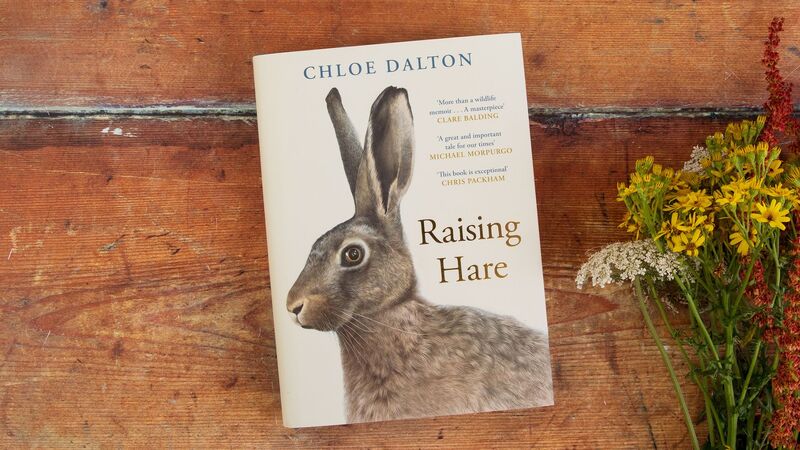You are viewing your 1 free article this month. Login to read more articles.
War Horse reimagined
Three generations of book lovers turned out for Michael Morpurgo’s talk at the Times Cheltenham Literature Festival about his children’s classic Warhorse.
Dressed in his now trademark red and waving a cheery greeting to the crowd and especially the “little ones”, Morpurgo began by telling interviewer Fiona Lindsay that his love of books came from his mother. “She loved reading to her children,” he said. “She only read us poems and stories that she loved herself.”
Nevertheless, and despite the fact he has written more than 100 books, Morpurgo did not become a great reader, all that early passion becoming drummed out of him by his punishment- and targets-oriented school for whom “the blackboard was everything.” The young Morpurgo would instead daydream, staring out of the window; he describes entering this “dreamworld” as “the best part of education”.
At the age of 18 or so, he had been converted to books by good teachers who knew how to tell a story and became, in his early twenties, a teacher himself. He started telling stories to the year-six pupils who, by mid-afternoon, “want to go home… wish you were dead”. All of these stories were told in the first-person. “There’s an immediacy to it,” he said, contrasting the distancing effect of ‘Once upon a time’.
War Horse, published in 1982, began when Morpurgo discovered a picture “at the bottom of a tea chest”. It showed the charge of a British cavalry unit: “One horse, in particular, had gone down, with a rider on his back, completely caught up in this [barbed] wire.”
The author spoke to the Imperial War Museum and discovered that one million horses went to World War I; only 65,000 came back. That made Morpurgo angry. Then he was told that many of those that did survive the war were sold to French butchers for meat because it was considered too expensive to bring them home. That made him angrier still.
Two more events fed into the creation of War Horse. The first was a war veteran he met in the Duke of York pub in his home village of Iddesleigh. “He said something wonderful,” said Morpurgo. “He said: ‘I was there with horses.’” The old soldier, fuelled by a couple more drinks, then spoke for two hours about the war, longer than he ever had to anyone. He was 17 when he went to war and told Morpurgo that the boys were “terrified the whole time,” though they couldn’t tell each other for fear of destroying morale. “’But there was one person I could talk to… my horse.’”
Morpurgo had the audience spellbound as he was telling this story. A remarkable natural storyteller, his sense of pace and verbal drama is second to none.
The second event was when a young boy from an urban background was visiting a farm thanks to the Farms for City Children charity Morpurgo and his wife had established. The boy never spoke, until one night the author saw him chatting away freely to a horse. “I could see that the horse was listening – and that’s what the old man had told me too… Now I could write the story, I knew it wasn’t sentimental tosh.”
The book was told from the point of view of the horse; the only way that Morpurgo could see to tell the story was via an independent observer “looking down on this unusual suffering”. The horse is “the universal victim of war”, which is why, Morpurgo thinks, the story has worked abroad. And it’s a simple tale: “Boys loves horse; horse is sent to war against boy’s wishes; boy goes to look for horse.” The complication as a writer was in doing justice to those who lost their lives in battle of came out the other side profoundly traumatized. “No story about war should be entertainment,” said Morpurgo, “it should be more than that.”
The book took time to find a large audience. When it was published, it failed to win the Whitbread Prize – Chair of Judges Roald Dahl told Morpurgo that “children don’t like history… I think he’d felt we’d moved on from wars”. Then the Berlin Wall fell, and war was everywhere again, small fragmentary conflicts in Eastern Europe that dragged in the world.
The book had spent 25 years ticking over. Then came the stage play, which came into being when stage director Tom Morris was looking for a follow-up to his hugely successful adaptations of books like Philip Pullman’s His Dark Materials and was given a copy of War Horse by his mother. The Handspring Puppet Company were brought on board, and the project came to life. Morpurgo was full of respect for what the puppeteers achieved with the show. “They suspend all ego,” he said. “There’s no sense that they are anything other than this being [the horse].” The play went on to win five Tony awards in 2011, including a special award for Handspring.
There has been a running joke in the Morpurgo household that the author cannot help but answer the phone. “It might be Steven Spielberg,” he’d reply. This had gone on for years until, recently, it actually was. (Well, almost, it was a representative of the great director.)
Spielberg’s producer had seen the play in London and had the director fly over the next day to see it. Spielberg was immediately convinced, staying on to talk to the cast on stage – two of whom make it into the film. “He’s a very warm man,” said Morpurgo. As for the production, “I’ve never known anything so fast in my life. It was signed in a couple of months, and at last I could go to buy some new shoes.”
The production of the film left Morpurgo floored. “Here was our supreme storyteller in film… doing it in a way where I don’t think it was penny pinching.” Spielberg is a softly spoken director, who “never raised his voice – it was like a conductor” and was “very consultative with the actors”. “I was in awe with the way he was painting his picture.”
The trailer was shown and I, along with many others in the room, had a lump in my throat. Perhaps it was Spielberg’s immense talent for mood and time that got us, but I think it was hearing this incredible writer relate the moving stories behind War Horse before watching the trailer. Morpurgo showed time and again in the event that he knew exactly how to talk to children in a way that was unpatronising, a sense of fun countered with what felt like a personal duty to tell them the truth. No wonder his devastating story has become universal.
War Horse is in cinemas from 13 January. The play of War Horse is showing at the New London Theatre now and throughout 2012. The book, published by Egmont, is out now.















